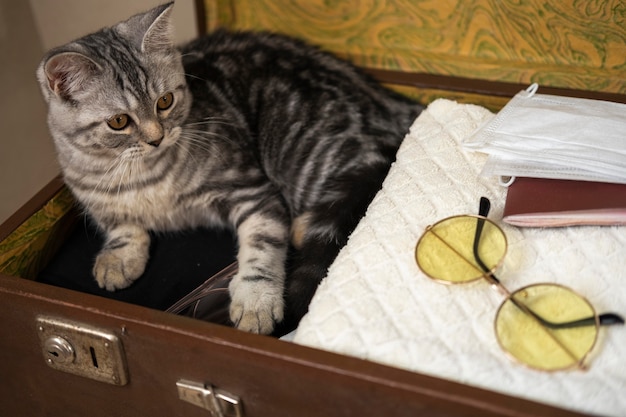Recognizing Digestive Issues in Dogs and Cats


Recognizing Digestive Issues in Dogs and Cats: A Guide for Marysville Pet Owners
Is your dog or cat suddenly refusing meals, vomiting, or having diarrhea? Digestive issues in pets can be alarming, especially when your furry family member seems uncomfortable, lethargic, or even in pain. At Marysville Veterinary, our experienced veterinary team knows how distressing it is to see your beloved pet suffer from tummy troubles. Located at 4010 136th St NE, Marysville, WA 98271, we’re dedicated to helping pets and their owners in Marysville and surrounding communities navigate these common health concerns with compassion and expertise.
In this blog, we’ll walk you through the most important signs of digestive issues in pets, what might be causing your dog or cat’s symptoms, and how timely veterinary diagnostics in Marysville can make all the difference. You’ll also learn what you can do at home, when it’s time to schedule an appointment, and why choosing a “vet near me” like Marysville Veterinary ensures your pet receives tailored, local care. If you’re searching for reliable pet diagnostics near me, or simply want to know what to watch for, you’re in the right place.
As part of our comprehensive approach, we offer thorough wellness examinations that can identify early signs of digestive upset—helping you address problems before they become emergencies.
Spotting Digestive Issues in Pets: What to Watch For
Digestive issues in pets are often easy to miss at first, especially if your dog or cat is still acting mostly normal. However, early recognition is key to helping your pet recover quickly and preventing complications. Common signs that suggest your dog or cat may be struggling with a digestive problem include vomiting, diarrhea, or loose stools. You might also notice a sudden lack of appetite, increased drooling, excessive licking of the lips, or visible discomfort after eating.
Additionally, changes in your pet’s usual behavior can signal trouble. These might involve lethargy, hiding, restlessness, or a reluctance to play. Other subtle clues like gurgling stomach noises, frequent swallowing, or even weight loss over several days can point toward underlying digestive disturbances. Cats are notorious for hiding their symptoms, so any change in litter box habits or repeated hairballs can be a red flag.
While a single episode of vomiting or diarrhea isn’t always an emergency, repeated or severe symptoms—especially combined with blood in the vomit or stool, dehydration, or ongoing refusal to eat—require prompt attention. Early intervention with veterinary diagnostics in Marysville can reveal the cause and help your pet get back to feeling their best.
Understanding the Causes: Why Digestive Issues Happen
Digestive issues in pets can result from a wide variety of causes, some of which are mild while others are more serious. Dietary indiscretion, which refers to eating something they shouldn’t, is a leading culprit, especially in curious dogs. Spoiled food, garbage, table scraps, or even certain houseplants can cause upset stomachs. Food sensitivities or sudden changes in diet are also common triggers for digestive upset.
Infections from bacteria, viruses, or parasites like giardia can lead to vomiting and diarrhea. Intestinal parasites are particularly common in young animals or pets who spend time outdoors. Chronic conditions such as inflammatory bowel disease, pancreatitis, or food allergies may also manifest as ongoing digestive problems. Stress, which can be brought on by changes in the household, travel, or new routines, sometimes causes digestive disturbances in both cats and dogs.
Other causes include foreign bodies (such as swallowed toys or bones), certain medications, or underlying illnesses affecting the liver, kidneys, or endocrine system. Dental issues can also play a role; for example, a pet with painful teeth may swallow food without chewing, leading to gastrointestinal upset. If you’re concerned about your pet’s oral health, our professional dental care services in Marysville are designed to address these concerns as part of your pet’s overall wellness.
How Digestive Issues are Diagnosed and Treated at Marysville Veterinary
When you bring your pet to Marysville Veterinary for digestive issues, our veterinary team begins with a comprehensive evaluation. This starts with a detailed history, including questions about recent diet changes, exposure to potential toxins, and the timeline of symptoms. During a wellness examination, our veterinarians carefully check for signs of dehydration, abdominal pain, or other abnormalities.
Diagnostic testing may involve bloodwork to assess organ function, stool analysis to check for parasites, and imaging techniques such as X-rays or ultrasound if a foreign object or obstruction is suspected. These advanced diagnostics in Marysville ensure we can pinpoint the cause and tailor treatment to your pet’s specific needs.
Treatment approaches for digestive issues in pets vary depending on the underlying cause. For mild cases, supportive care such as fluids, a bland diet, and rest may be recommended. If infection or parasites are identified, targeted medications are prescribed. In more serious cases, hospitalization, intravenous fluids, or even surgery may be required, especially if a blockage or severe illness is present.
Throughout your pet’s care, our veterinary professionals prioritize comfort and safety. We’ll keep you informed at every step, ensuring you understand the diagnosis, treatment plan, and what to expect during your pet’s recovery. Our role as your primary care provider means we’re focused on building a lasting relationship with you and your pet—so you always have a trusted resource when digestive concerns arise.
Prevention and Home Care: Keeping Your Pet’s Digestive System Healthy
Preventing digestive issues in pets often starts with simple, proactive steps at home. Feeding a consistent, high-quality diet that’s appropriate for your pet’s age and health status is key. Any dietary changes should be introduced gradually over several days to minimize the risk of upset. Keeping garbage, toxic plants, and human food out of reach helps reduce the risk of accidental ingestion.
Regular deworming and parasite prevention, tailored to local risks in Marysville and surrounding communities, play a crucial role in maintaining your pet’s digestive health. Scheduling routine wellness examinations allows our veterinarians to monitor your pet for early signs of trouble, address dental health concerns, and keep vaccinations and preventives up to date.
At home, ensure your pet has access to fresh water at all times, and monitor for subtle signs of discomfort, such as skipping meals or changes in stool consistency. If your pet has a sensitive stomach, your veterinarian may recommend a prescription diet or supplements to support gastrointestinal function.
Seasonal changes in the Pacific Northwest can also influence digestive health. For example, increased outdoor activity in warmer months raises the risk of exposure to parasites or unfamiliar foods. Staying vigilant and maintaining regular check-ups with a quality vet near me helps catch issues before they escalate.
When to Seek Veterinary Care: Knowing When It’s Time to Call
Some digestive issues in pets resolve on their own, while others require prompt veterinary attention. You should schedule an appointment with your veterinarian if your dog or cat is experiencing repeated vomiting, diarrhea that lasts more than a day, refusal to eat, or visible discomfort. The presence of blood in vomit or stool, severe lethargy, or signs of dehydration such as dry gums or sunken eyes are especially urgent and should never be ignored.
Puppies, kittens, senior pets, and those with chronic health conditions are at higher risk for complications and should be evaluated sooner rather than later. If your pet has ingested a known toxin, foreign object, or is unable to keep water down, immediate veterinary diagnostics in Marysville are essential.
Trust your instincts—if your pet’s behavior seems off, or you’re worried about their well-being, contacting a veterinarian near me provides peace of mind and timely care. Our veterinary team is committed to providing the guidance and support you need, with a focus on compassionate, individualized attention.
Conclusion: Your Partner in Pet Digestive Health
Digestive issues in pets can be unsettling, but you don’t have to navigate them alone. At Marysville Veterinary, we’re here to support you and your pet every step of the way, from early detection to advanced pet diagnostics in Marysville. Our comprehensive, relationship-based care model means you can always count on a friendly face, clear answers, and a treatment plan tailored to your pet’s unique needs.
If you’ve noticed symptoms such as dog and cat vomiting, diarrhea, or appetite changes, don’t wait—schedule an appointment with the best vet near me. Our team of veterinarians is ready to help your pet feel better and get back to their happy, healthy self. To learn more or to book a wellness examination, call us at (360) 659-7334 or visit us at 4010 136th St NE, Marysville, WA 98271. Your pet’s digestive health is our priority, and we’re honored to be your trusted veterinary services near me in Marysville and the surrounding communities.
This article is intended for informational purposes only and should not replace professional veterinary advice. Always consult your veterinarian if you have concerns about your pet’s health or symptoms.


















